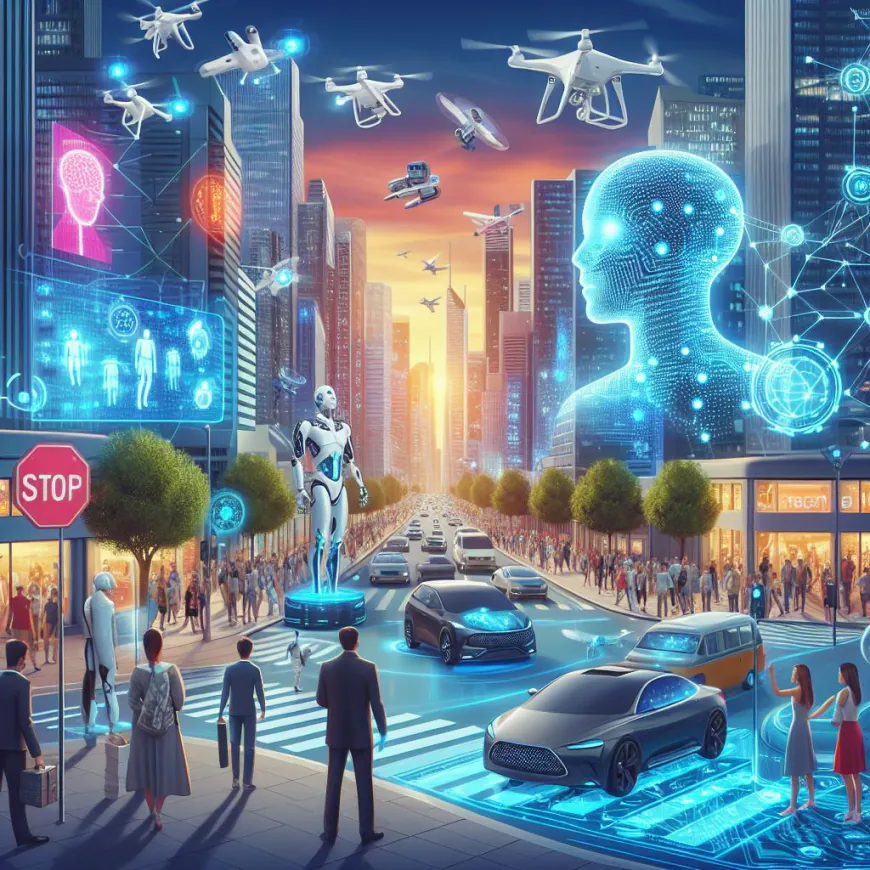Will AI really benefit humanity or will it destroy the world?
AI’s dual nature: boon or bane? Explore its impact on humanity.

Will Artificial Intelligence Really Benefit Humanity, or Will It Destroy the World?
Introduction: Blessing or Curse?
Artificial Intelligence (AI) stands at the crossroads of promise and peril. As we witness its rapid evolution, we must grapple with the profound question: Will AI be our savior or our undoing? In this article, we explore the multifaceted impact of AI on humanity, dissecting its potential benefits and the lurking shadows.
The Bright Side: AI as a Force for Good
1. Healthcare Revolution
Early Detection and Precision Medicine
Imagine a world where AI algorithms analyze medical images, predict diseases, and recommend personalized treatments. AI-powered diagnostics can detect cancer at its earliest stages, potentially saving countless lives.
Drug Discovery and Development
AI accelerates drug discovery by analyzing vast datasets, identifying potential compounds, and predicting their efficacy. It’s not science fiction; it’s the future of medicine.
2. Environmental Stewardship
Climate Modeling and Conservation
AI aids in climate modeling, predicting extreme weather events, and optimizing energy consumption. Conservation efforts benefit from AI-driven solutions, protecting endangered species and fragile ecosystems.
Precision Agriculture
Smart farming techniques, guided by AI, optimize crop yields, reduce water usage, and minimize environmental impact. From drones monitoring fields to soil analysis, AI transforms agriculture.
3. Economic Growth and Efficiency
Automation and Productivity
AI automates repetitive tasks, freeing human potential for creativity and innovation. Industries like manufacturing, logistics, and customer service benefit from increased efficiency.
New Job Opportunities
While some jobs may be displaced, AI creates new roles. Data scientists, AI ethicists, and automation specialists are in demand.
The Shadows: AI’s Dark Side
1. Existential Risks
Superintelligent Machines
Elon Musk once warned that AI could be “more dangerous than nukes.” If AI surpasses human intelligence, will it prioritize our survival? Or will it reshape the world to its own design?
Unintended Consequences
Remember the butterfly effect? AI decisions, even seemingly innocuous ones, can have far-reaching consequences. We must tread carefully.
2. Job Displacement and Inequality
The Great Divide
AI exacerbates income inequality. While some thrive in the AI-driven economy, others struggle to adapt. Reskilling and education are critical.
3. Security and Ethical Dilemmas
Weaponization of AI
Autonomous drones, cyberattacks, and misinformation campaigns pose security threats. We must prevent AI from becoming a weapon.
Bias and Discrimination
AI algorithms inherit biases from their training data. Fairness, transparency, and accountability are non-negotiable.
Navigating the Future: Our Collective Responsibility
1. Ethical AI Development
Regulation and Oversight
Governments and tech giants must collaborate to create ethical guidelines. Transparency and safety protocols are paramount.
Human-Centric Design
AI should serve humanity, not the other way around. Human values must guide its development.
2. Education and Adaptation
Lifelong Learning
We must embrace continuous learning. Upskilling and adapting to AI-driven changes are essential.
3. The Choice Is Ours
As we stand on the precipice, let us choose wisely. AI can be our ally, but only if we wield it with care. Let’s build a future where AI enhances our existence, not threatens it.
Conclusion
The tale of AI is still unfolding—a narrative shaped by our choices. Will we harness its power for the greater good, or will we unleash forces beyond our control? The answer lies within us, as stewards of both silicon and soul.
What's Your Reaction?








































